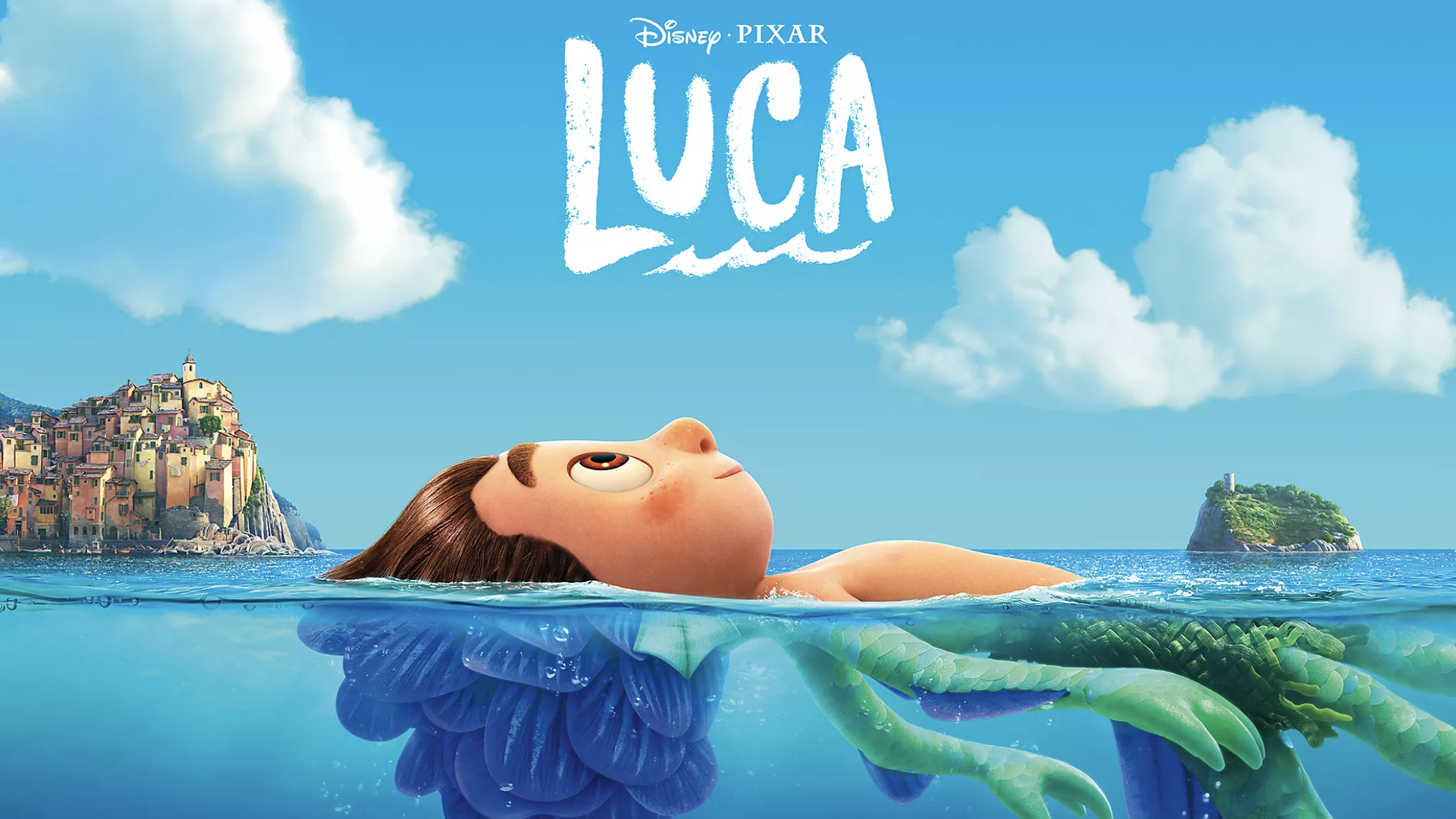LUCA: FILM REVIEW
Set in summer-glazed Italy, Enrico Casarosa’s Luca revolves around two “sea-monsters,” Luca (Jacob Tremblay) and Alberto (Jack Dylan Grazer), who, although different, form an endearing friendship. If a picture of two Loch Ness monsters pop-up in your head, think again. Luca and Alberto embody creatures that almost every kid has dreamed about. In water, they have gills, fins, and long tails. On land, they’re fully-fledged humans. But in Luca’s world, going above the surface is dangerous, and it’s not until he accidentally meets Alberto that he ventures out of the water — a move that spurs self-discovery and adventure like no other.
Like many friendships between young boys, Luca and Alberto are initially bonded by their shared interests — a call to the unknown, and in particular, an obsession with a shiny red vespa that will take them to explore every corner of the world. Alberto is the friend with devil horns, who convinces a hesitant Luca to betray his parents’ orders and loosen up a little. When Luca’s parents find out that he has been traversing on land, they threaten to send him to live in the depths of the ocean with his weird Uncle Ugo (an anglerfish who can’t see beyond what’s in his head). Luca flees with Albert to Portorosso, a nearby fishing town on the Italian Riviera. They befriend a kind-hearted and ambitious girl named Giulietta (Emma Burman), and the three of them train for the infamous Portorosso cup — a triathlon of sorts that involves swimming, eating pasta, and biking. While Luca and Alberto are motivated by prize money that could be used to buy a Vespa, Giulietta wants nothing more than to beat the race’s long standing winner: the overly-pompous Ercole Visconti.
Luca is a movie that is easy to like. Its protagonists are fascinated by the world and approach it with a naivety that bulldozes all of life’s invisible barriers. Luca and Alberto see nothing but infinite possibilities — all the types of pasta they have yet to eat, cliffs they have yet to jump off, and stars they have yet to touch. But it’s not the characters themselves that take Luca beyond a cutesy Pixar story — it’s their malleability and willingness to change.
For Luca and Alberto, such character development is quite clear, and in many ways, obvious given their young age. It’s more-so the adults in the film who take on a surprising role. Luca’s parents, who are understandably worried and overprotective, are forced to rethink their approach to parenting — asking themselves if what they’re doing is best for them or for their kid. Giulietta’s father, Massimo, although warm-hearted, is generally set in his ways. But in Luca, all it takes is the earnesty of two kids to change a fisherman with his eyes set on killing sea-monsters. While watching the film, I hoped that more adults and parents would be willing to do the same.
Luca, like many Pixar films, warmly dazzles from its outset. But it's the story’s undertones — some of them arguably queer — that make it reflective for both kids who wish they could turn into fish in water, and adults who have to learn to let go. The 90-minute film is full of pleasant surprises at every turn — and even its ending marks the promise of a new adventure.



